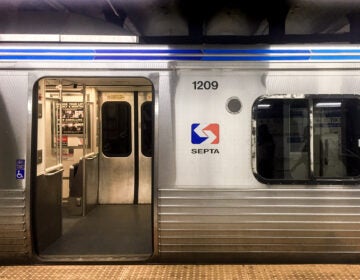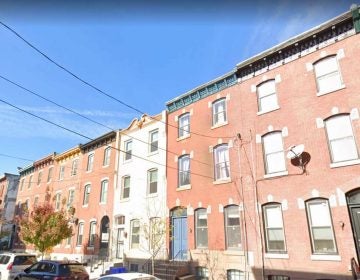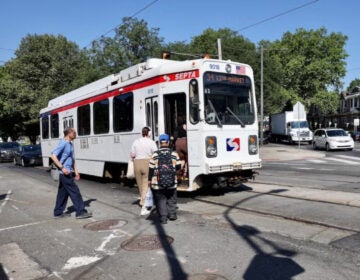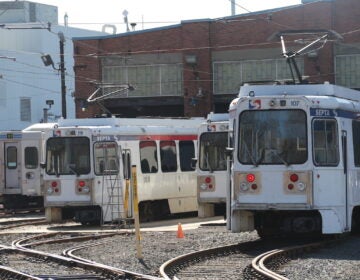Transit riders give their two cents on SEPTA’s proposed budget
The proposed budget, unveiled last month, boasts another year of delayed fare increases and a plan to return transit service to 96% of its pre-COVID capacity.
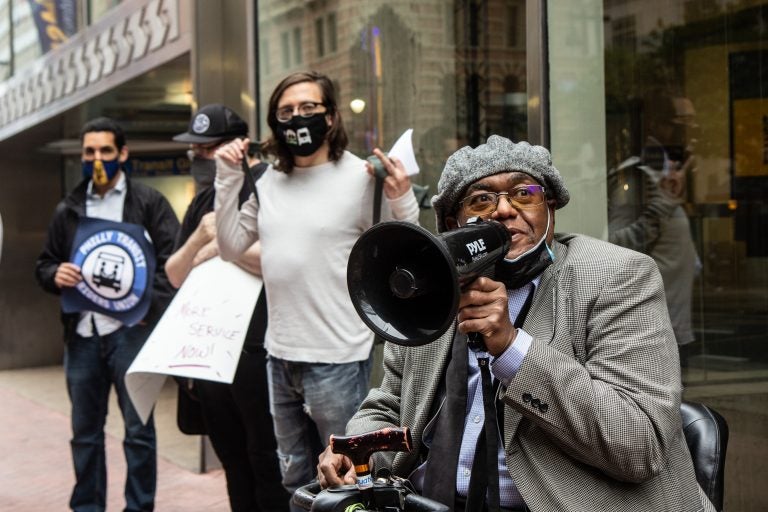
Colmon Holmes, who uses CCT as his main mode of transportation, said he was concerned about the cleanliness of public transit at a PhillyTRU rally outside SEPTA headquarters on May 24, 2021. (Kimberly Paynter/WHYY)
Kenneth Brown of Chestnut Hill rides the 23 bus everyday. He goes to his stop and waits for the bus to slow to a halt to let him and whoever else may be waiting on.
But far too often the bus just keeps rolling due to overcrowding, even during the pandemic, he says.
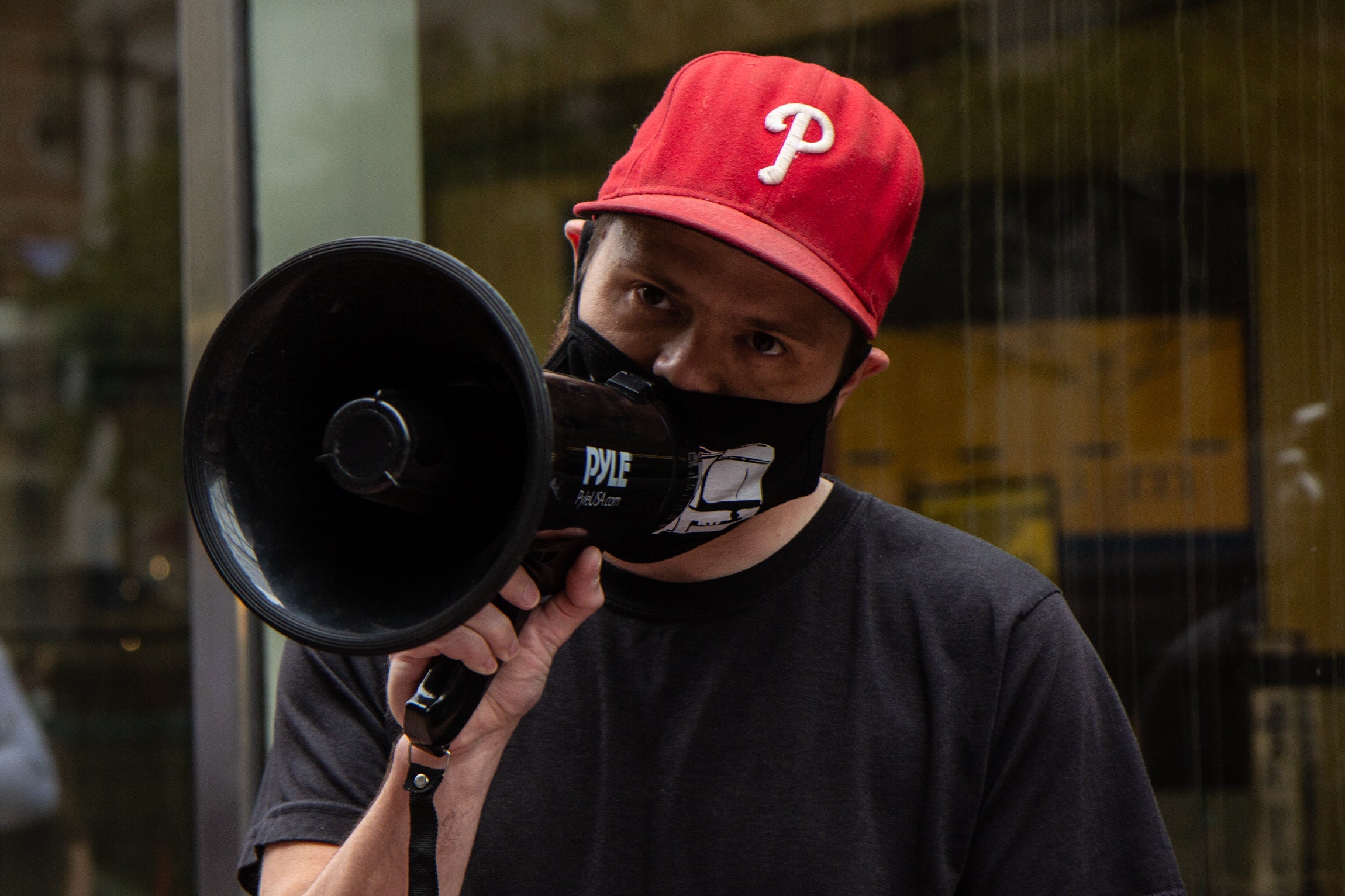
So when he stumbled upon the Philly Transit Riders Union’s rally for the SEPTA People’s Budget outside of SEPTA’s headquarters at 1234 Market Street, he took the bullhorn and gave SEPTA a piece of his mind.
“They ride past you constantly. I understand COVID and I understand what’s happening with that. And I know it’s limited services. I get that, but damn! Put some more buses on the line,” Brown said to a receptive crowd. “I’m sick and tired of this shit.”
Brown was among the 30 or so people at the rally, the riders union’s first. Members of the union gathered written testimonies to submit to SEPTA as authority officials are accepting public input for its $1.52 billion FY2022 operating budget proposal.
“There’s a really rich transit landscape. We just need for SEPTA to act like it,” said Bakari Height, a riders union member.
”We need for them to really respect the fact that there are a lot of riders here, most of whom have to be … so we need systems like this to work.”
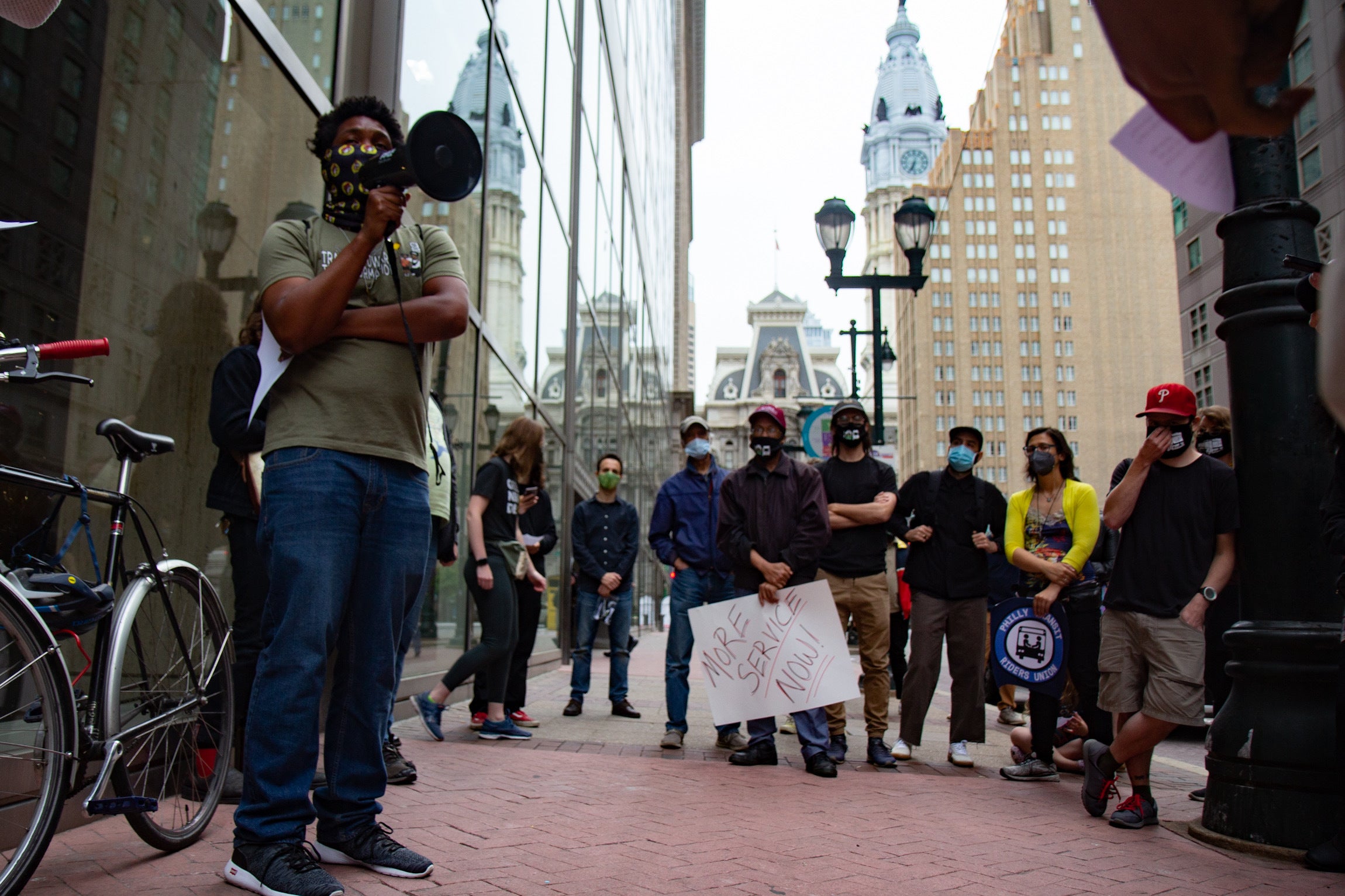
So far two public hearings for the budget were held Monday at 11 a.m. and 6 p.m., as the rider’s union held its rally. Two more are scheduled for Tuesday at 10 a.m. and 4 p.m., but riders can submit their comments on the operating budget until May 31.
In addition to overcrowding issues, SEPTA also received testimony about better integrating its strategic plan into the budget, transparency about the effectiveness of its cleaning efforts, and transparency on its plan to bring riders back to the system.
SEPTA spokesperson Andrew Busch said public comments and written testimony will be reviewed and considered before the budget proposal is sent to the board for a vote on June 24.
“SEPTA appreciates the participation of riders, residents, and other stakeholders in the budget public hearings,” said Busch.
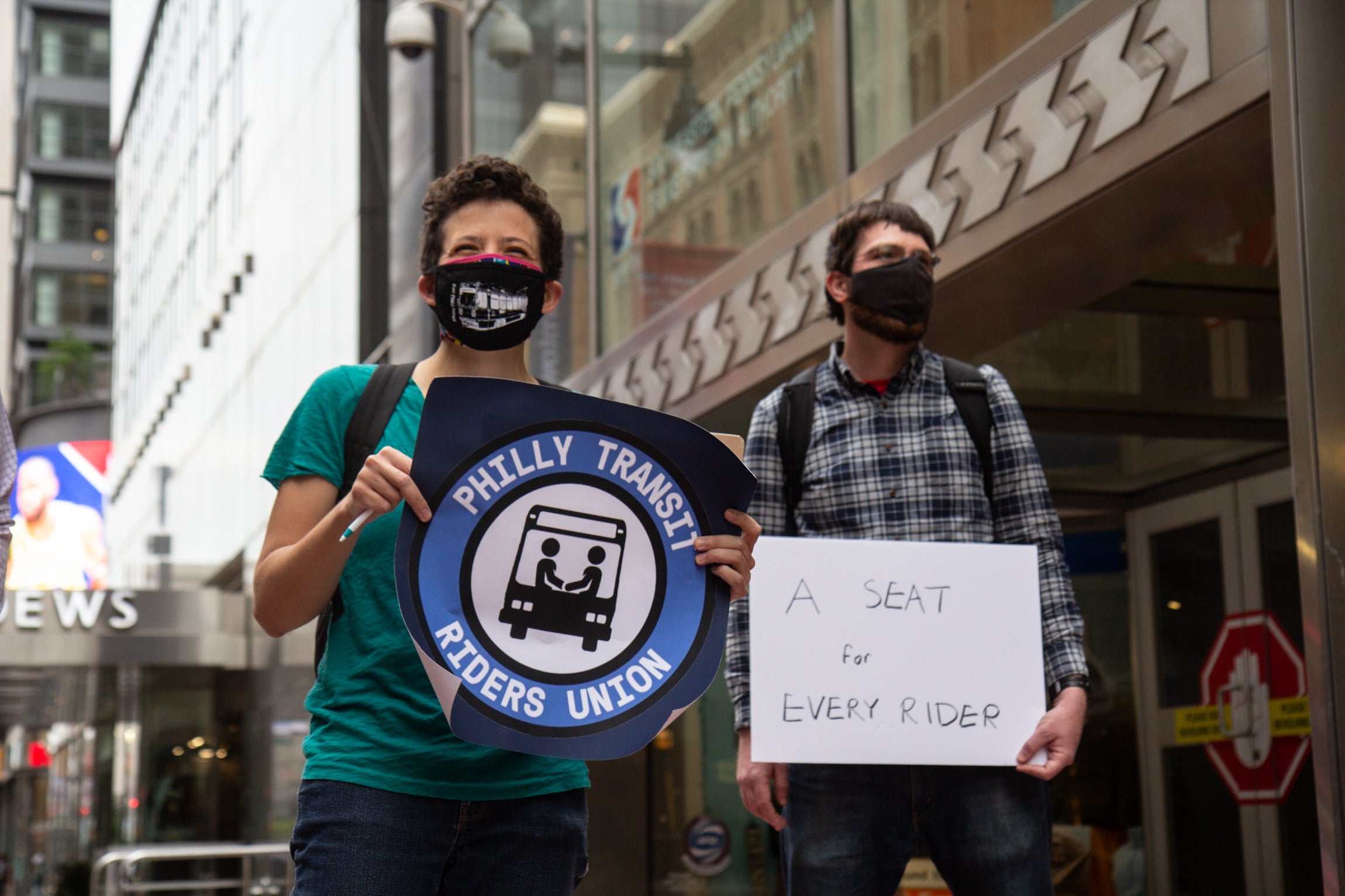
The proposed budget, unveiled last month, boasts another year of delayed fare increases and a plan to return transit service to 96% of its pre-COVID capacity. Over the course of the year, the agency also expects to restore Regional Rail service to 80% — a process that will be closely analyzed as the agency moves ahead with long-term strategizing about adapting the commuter rail to the new remote-work trends.
The authority is moving ahead with this plan even before the budget is approved. Recently, SEPTA announced that it will remove COVID-19 capacity limits on all SEPTA vehicles on June 1.

Subscribe to PlanPhilly
WHYY is your source for fact-based, in-depth journalism and information. As a nonprofit organization, we rely on financial support from readers like you. Please give today.



